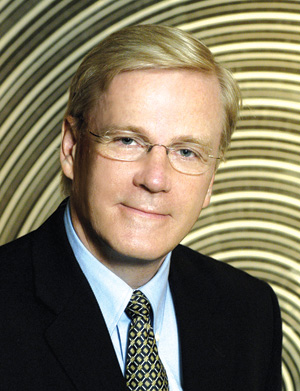
While the role of general counsel iscommonplace in many Canadian companies, the role is now beginning to appear inlaw firms to deal more efficiently with internal policies and procedures.
 Law firms are generally governed by committees,
but with an increasingly complex regulatory environment — especially in the
post-Neil era — firms can lose the ability to respond quickly to issues.
Law firms are generally governed by committees,
but with an increasingly complex regulatory environment — especially in the
post-Neil era — firms can lose the ability to respond quickly to issues.
Jamie Dunbar of Fraser Milner Casgrain LLP was
appointed earlier this month as the firm's general counsel. The firm says it's
a first in
A recent U.S. survey by Altman Weil, Inc. of
the top 100 law firms found that the percentage that have designated a general
counsel has increased from 63 per cent in 2004 to 69 per cent in 2005, with 92
per cent of the general counsel being partners and none being from outside the
firm.
Dunbar, a partner who practises in the areas of
professional liability and commercial and insurance litigation, will oversee a
range of internal and external mandates, including conflict resolution, ethics,
professional liability, and standardization of the firm's internal practices
and procedures.
"It's a job that we do anyway," he says. "It's
a job any law firm does anyway. The question is what's the best way of
allocating resources to this and we think that rather than do it on an ad hoc
basis we should do it on a planned basis that allows one person to make
efficient and consistent and correct decisions about things."
"I had indicated a willingness to do it;
obviously that was a precondition to being assigned," he says. "It's not
something that I'm ending up with, it's something that I want to do and am
excited about.
"I've been a resource, I guess you could call
it, that's been used in the
"Sometimes the result of the committee is a
report that kind of gathers dust or it may be reinvented by a committee that
addresses the same sort of thing another time," he says. "There's not a thread
that runs through it all."
Dunbar says the main reason for the creation of
the position is enhanced client service, because even though there may be
things going on like checking conflicts, it shouldn't be something that creates
delays for the client.
"Conflicts [are] a very significant issue
because of the Neil decision and that's continuing to evolve and the methods by
which that is implemented are ones that have to be organized carefully and
implemented in a consistent way," he says. "Because conflicts must be resolved
before work can proceed, client service may be affected — that simply doesn't
need to happen."
The Neil judgment established that a lawyer
cannot act for a client if its representation would prove adverse to the
interests of another client, even if no confidential information is involved
and the two matters are unrelated. In a series of more recent cases, courts
have determined that the duty of loyalty continues to some extent even after a
client becomes a former client.
"Even relatively small firms can become
'committee bound' and lose the ability to respond quickly to issues such as
identifying and resolving possible conflicts that arise out of mandates for
different clients," Dunbar says.
He says the dedicated general counsel role
moves a firm from a reactive approach, in which committees with limited
mandates "put out fires," to a proactive approach that has the benefit of
strengthening firm practices and culture and enhancing client service.
"Developing and implementing policies on issues
that affect client services is a key function in a law firm, and educating
lawyers on those issues is an important ongoing responsibility."
"There's nothing rigid in that, in the sense
that it could be more and it could be less. My practice and the role of general
counsel are both flexible enough that I can accommodate blips for a day or two.
It's really a matter of estimating what amount of time it will likely take and
then we'll be able to compare against what it really takes perhaps after a
little while.
"I'm very excited about it and I think it's a
terrific opportunity to take the initiative and I hope to set a standard that
will allow our clients to be better served. It's all about client